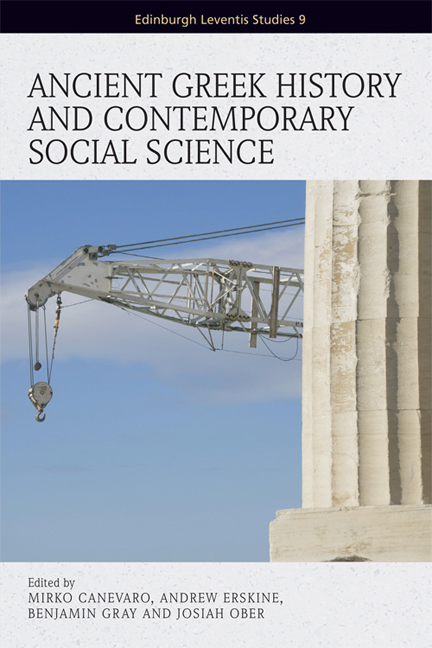18 - Entanglement, Materiality and the Social Organisation of Construction Workers in Classical Athens
Published online by Cambridge University Press: 06 May 2021
Summary
INTRODUCTION
Ancient historians have long been interested in exploring at a granular level the lived experiences of individuals and social groups. Recently, some historians have begun using a network model, viewing individuals as members of clusters, each person belonging to multiple social groups that cut across lines of class and politics. Inside such clusters may be individuals from many points on a variety of social spectra, ranging, for example, from poor to rich, slave to free. Citizens eager to participate in the democracy could perform in a chorus, or serve in the army, or labour beside other men who leaned towards oligarchy. Free citizens and metics worked together with slaves on temple construction. Initiates in the Eleusinian mysteries included a wide range of individuals, free and slave, native and immigrant, joined together by faith, but perhaps, if citizens, voting against each other in the Assembly. In what follows I apply a networks and complex adaptive systems approach to the well-known fifth-century bce Athenian building programme associated with Pericles, as a case study in the emergence of a phenomenon that could not be predicted by analysing each of its constituent parts in isolation.
The network metaphor permits us to observe that for ancient Greek men as for us moderns, the many informal clusters and formal associations we belong to may put us in contact with people of diverse backgrounds and beliefs. These clusters, both those we choose to join and those we contingently find ourselves part of, help to constitute each person's identity. Among ancient Athenians, imagine a man who identifies himself within a cluster of labourers in the same trade-based network, as well as a fellow religious cult worshipper within a religious network, as a member of an ephebic unit within the military network, a tribesman within the network of tribes, a member of a phratry within the network of brotherhoods, and so on. Individuals tend to see themselves as parts of many different wholes.
In this chapter, I focus specifically on clusters of construction workers, grouped by their crafts or trades, who worked from c. 450 to 432 in high-performing teams. The chapter is based on three premises: first, that, within their network, the workers became codependent; next that they were also ‘entangled’ with the materials with which they worked; and finally that such entanglement between materials and craftsmen is a phenomenon of materiality.
- Type
- Chapter
- Information
- Ancient Greek History and Contemporary Social Science , pp. 512 - 528Publisher: Edinburgh University PressPrint publication year: 2018



